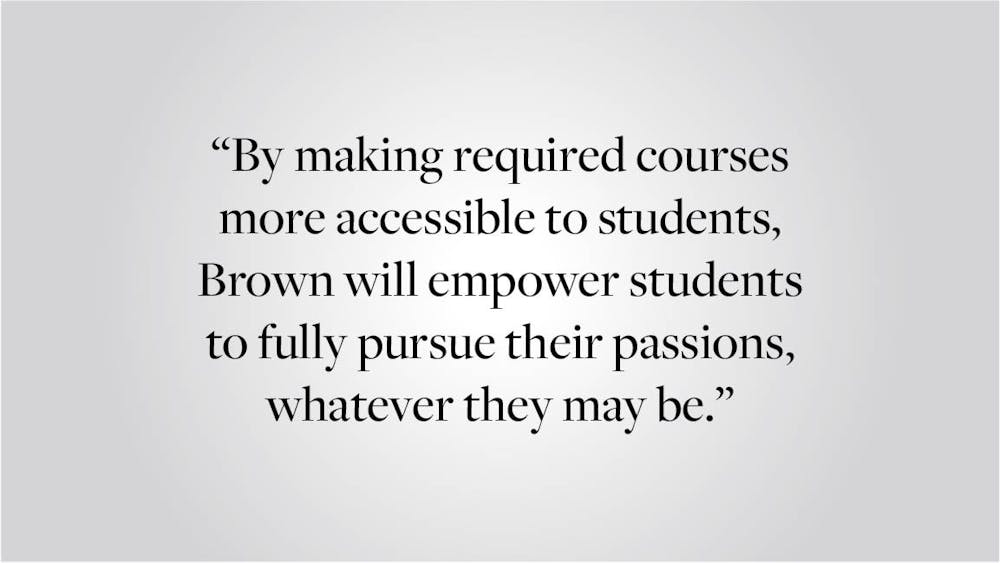For many students, vying for a spot in a popular class is a shopping period tradition — begging professors for overrides, getting their names onto waitlists and crossing their fingers that a spot will open up. Some amount of competition is expected, as spaces are limited. But when these highly popular courses are required for a concentration, students need to be able to reliably register for them. The University must make required classes more accessible to ensure that students can pursue any concentration they desire.
The problem is widespread, spanning various departments at Brown.
Literary Arts and Visual Art courses are notoriously hard to get into. And high-demand classes in these concentrations are often prerequisites, like VISA 0100: “Studio Foundation,” an art course required for students hoping to take a class at RISD or essentially all upper-level classes in the Visual Art Department. If an intended concentrator can’t make it into a required course within their first few semesters, the delay can deter students from attempting the concentration altogether.
And the problem goes beyond prerequisite classes: Sometimes, concentrators are only able to enroll in an introductory-level course late in their Brown careers, after they have already taken the higher-level courses it was meant to prepare them for.
For example, the International and Public Affairs concentration recommends that concentrators take a required foundational course in their first four semesters. However, for tracks like Development or Security, completing these foundational courses within the recommended first four semesters is out of reach for many students. IAPA 1200: “Foundations of Security” has a 40-student cap and is offered only once a year. This semester, about half of the class consists of juniors and seniors, according to Courses@Brown, leaving less room for the sophomores and first-years the class was intended for.
Concentrators should not have to put off taking classes meant to provide “a common set of questions, ideas and perspectives that students can then use as a basis for their selection of electives” until late in their progression through the degree.
Some of these courses deal with an overload of interested students by random lottery, first-come-first-serve waitlists or strange priority systems. But these are not sustainable solutions. As long as concentrators are still struggling to register for required classes, these fixes are not enough.
There are several ways the University could make high-demand required courses more accessible.
First, the enrollment limit could be raised, allowing more students to take a given course. This might not be an ideal solution for workshop or seminar courses, but it could work well for others.
Second, more sections of a course could be offered in a semester, preserving class sizes but raising the total number of students who can enroll.
Third, required courses that are offered only annually — or even less often — could be offered every semester, giving students more frequent opportunities to find a spot. In combination, these changes could go a long way toward ensuring that concentrators can take the classes they need, when they need them.
We acknowledge that expanding access to courses is easier said than done, constrained by factors such as teaching assistant availability and classroom space. But when the problem is so pressing and pervasive, the University should address it.
Academic exploration is made more difficult by the inaccessibility of courses to concentrators and non-concentrators alike. Those who are interested in a course but don’t need it to graduate may be pushed out by those who do, or vice versa. Students who might be considering a certain concentration could be discouraged, abandoning it for something more available. This shouldn’t be the case. By making required courses more accessible to students, Brown will empower students to fully pursue their passions, whatever they may be.
Editorials are written by The Herald’s editorial page board. This editorial was written by its editor Johnny Ren ’23, and members Catherine Healy ’22, Caroline Nash ’22.5, Augustus Bayard ’24, Devan Paul ’24 and Kate Waisel ’24.





